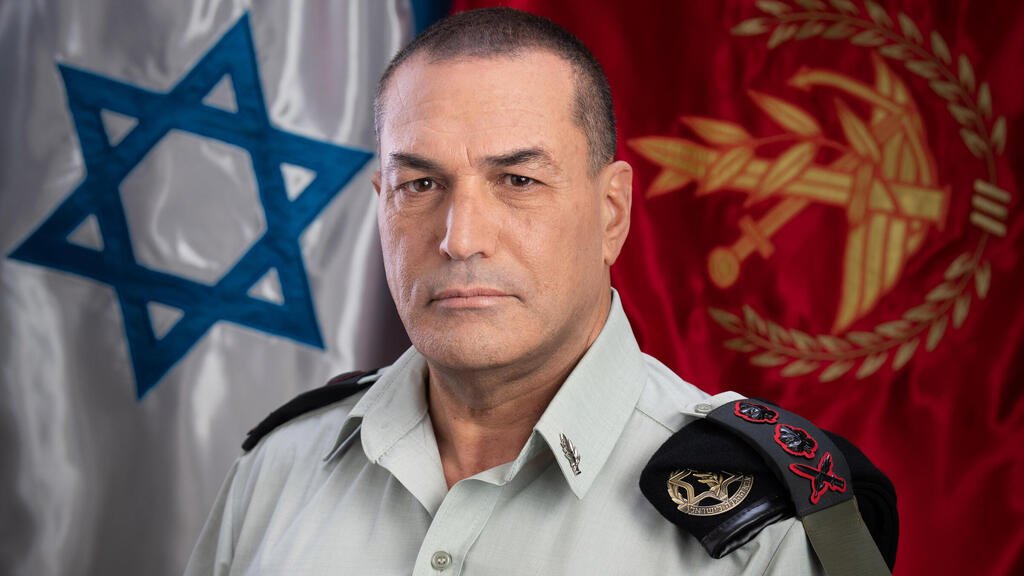Zamir has served in the IDF for 38 years in a variety of combat and command positions. He enlisted in 1984 in the Armored Corps, later completing the Tank Commanders’ Course with honors before becoming an officer. In 1992, he was appointed operations officer for the 7th Armored Brigade, and two years later, he took command of the 75th Battalion. He subsequently served as the operations officer of the 162nd Division.
In 2003, Zamir was appointed commander of the 7th Armored Brigade, and four years later, he took command of the 143rd Division. He later led the 36th Division. In 2012, he became military secretary to Prime Minister Benjamin Netanyahu, and in 2015, he was appointed head of the Southern Command. His last military role, from 2018 to 2021, was as deputy chief of staff under Aviv Kochavi.
Zamir holds a bachelor’s degree from Tel Aviv University and a master’s degree from the University of Haifa. He also completed management courses at the Wharton School of Business in Philadelphia and the École Militaire in Paris. He resides in Hod Hasharon with his wife, Orna, and their three children. His son Ori, a major in the Armored Corps, has been fighting in Gaza since the war began and previously received the chief of staff’s commendation. His daughter Roni, a former officer in the Golani Brigade’s reconnaissance unit, was called up for reserve duty during the war. His youngest son, Itai, is 15 years old.
He was Netanyahu’s favored candidate for chief of staff as early as 2018, but at the time, he was deemed inexperienced, having only served in one General Staff role—Southern Command. He was also considered in 2022 but lost out to Herzi Halevi. Zamir is well-regarded within the military and across the political spectrum. Before his appointment, senior government officials said that “Zamir is trusted by Israel’s leadership and is the right person to rebuild the IDF after the failures of October 7.”
“On the morning of October 7, the IDF failed in its mission. The border was breached. Our enemies infiltrated our communities, massacring our children, our women, our brothers and sisters. But from the devastation, the Israeli people rose again, demonstrating their strength and unity in times of crisis. Soldiers and civilians alike engaged the enemy, fighting as individuals and in small units, often at the cost of their own lives. They showed us that we are one people,” he said.
Zamir emphasized that the fight is not over. “We achieved significant victories on the battlefield. We won battles in Gaza and Lebanon and struck targets in Yemen and Iran. Hamas has been dealt a heavy blow but has not yet been defeated. The mission remains unfinished. We will never forget the horrors of October 7. We will etch in our hearts the memory of our sons and daughters, pure of heart, fleeing from a festival in an open field, hunted by predators. We will remember the entire families, the terror-stricken faces of children and parents, slaughtered and burned. We will never forget the cries for help against the sheer evil of the murderers. We will not forgive. We will not forget. This is a war for survival! We will continue the fight to bring our hostages home and achieve victory.”
In his first meeting with the General Staff, Zamir presented his vision for transforming and expanding the IDF, focusing on bolstering the ground forces, which have deteriorated over the past decade. He declared that 2025 would be a year of war, with an emphasis on Gaza and Iran, while also consolidating achievements in other theaters.
He underscored the importance of military victory and called the return of the hostages a moral obligation, ordering that their photos be displayed in his office until they are freed. Zamir also instructed the reestablishment of an additional tank brigade and the potential formation of a new infantry brigade. Furthermore, he decided to disband the Strategic and Iran Directorate and transfer its responsibilities to other divisions.
